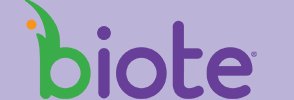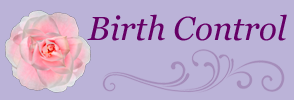Information COVID-19 Coronavirus

The Victoria Women's CLinic is providing the following information to help keep our patients and employees informed about the COVID-19 coronavirus.
COVID-19 Coronavirus Patient Self-Assessment Tool
If you have symptoms of respiratory illness (e.g., fever, cough and/or shortness of breath), answer the following questions:
1. Have you recently traveled outside the country? Current countries at high risk include all Asian countries, Italy, and Iran.
Yes
No
2. Have you been in close contact with anyone known or suspected to have the COVID-19 coronavirus illness? Close contact is defined as within 6 feet for 3 minutes or more.
Yes
No
If you answered yes to one or both of these questions and have respiratory symptoms:
Stay home and call The Victoria Women's CLinic (361-578-5233). A patient representative will take your information and have a healthcare provider contact you within 24 hours to provide additional information and discuss the best options for you.
If you believe your symptoms are life threatening, go to the nearest hospital emergency department. We recommended that you call the emergency department immediately so the staff can provide you with arrival instructions.
If you do not have respiratory illness symptoms, please refer to information below or contact your local health department.
How can I limit my risk of contracting COVID-19?
The Surgeon General has described “social isolation” as one way to limit your risk. In addition, “home quarantine” is being recommended for stable patients diagnosed with COVID-19.
“Social isolation” is one way of decreasing risk among patients. In simple terms, it means to control the people you come in contact with. Enjoy time with your family and friends, knowing if they are suspected of having COVID-19 coronavirus, or have been exposed to someone who has it, they should postpone contact with you. Large crowds should be avoided because people who are ill may not understand the risk they pose to you.
“Home quarantine” is only recommended for people that have tested positive for COVID-19 coronavirus or who have had close contact with a person who has tested positive. If you are advised to home quarantine, this guidance should be strictly followed as it means you are a risk to others, and should strictly stay at home for two full weeks. To quarantine at home means to eliminate any close contact with others. You should be confined to your home, unless there is a medical emergency. To prepare for this potential situation, make sure you have adequate supplies, including any critical medications. If you are concerned that you may not have your critical medications, please contact one of our staff who can help.
I was tested for COVID-19. What should I do while waiting for the results?
The turnaround time for your results is expected to be 3 to 4 days. Special circumstances could delay the results. Please follow the steps below until your doctor contacts you with the results of the COVID-19 coronavirus test:
1. Stay home. You should not leave your home except for emergency medical care. Do not go to work, school, or public places. Do not use public transportation or taxis/ride shares.
2. Separate yourself from other people in your home. You should stay in a different room from other people in your home. Use a separate bathroom, if available.
3. Wear a face mask. Wear a face mask when you are in the same room with other people and when you visit a medical provider. If you cannot wear a face mask, other people in your home who are with you should wear one.
4. Avoid sharing household items. Do not share dishes, drinking glasses, cups, eating utensils, towels, bedding or other household items with other people in your home.
5. Wash your hands. Wash your hands often and thoroughly with soap and water for at least 20 seconds. Use an alcohol-based hand sanitizer if soap and water are not available and if your hands are not visibly dirty. Avoid touching your eyes, nose, and mouth.
6. Cover your coughs and sneezes. Cover your mouth and nose with a tissue when you cough or sneeze, or you can cough or sneeze into your sleeve. Throw used tissues in a lined trash can, and immediately wash your hands with soap and water for at least 20 seconds.
7. Monitor your symptoms. Symptoms of COVID-19 are similar to lower respiratory symptoms like cough, congestion and shortness of breath. Symptomatic treatment is recommended. Tylenol and fluids, rest and a healthy diet. If you experience moderate to severe shortness of breath, contact your medical provider immediately. If you are directed to a health care facility, call the facility beforehand and let them know of your impending arrival and of your current status as a COVID-19 suspect patient.
8. What if my test is positive? Most patients who test positive for COVID-19 will experience mild to moderate respiratory symptoms and recover with supportive care. If your test is positive, you will be home quarantined for at least 14 days. This timeframe may change based on the current CDC guidelines.
Where has coronavirus/COVID-19 been detected?
As of March,13 2020: Currently, coronavirus/COVID-19 has been detected in over 60 countries. Secretary of Health and Human Services Alex Azar reported on Sunday, March 1 that there were 23 cases in the United States not associated with the repatriation of American citizens from overseas. He stated that more cases in additional states are likely. States with confirmed COVID-19 cases include Washington, Oregon, California, Arizona, Wisconsin, Illinois, New York and Massachusetts. The first reported COVID-19 death in the United States was reported in the state of Washington on Sunday, March 1.
Should I wear a face mask when I am in public?
Face masks for the general public are not recommended. American Surgeon General, Jerome Adams, has shared that face masks are not effective in the prevention of COVID-19. In fact, the purchase of face masks by the general public is creating a shortage for those most in need: healthcare workers caring for patients with known or suspected infection. The government has now contracted 3M to produce an additional 30 million face masks per month to meet growing use.
What is the current risk assessment?
For the general American public, who are unlikely to be exposed to this virus at this time, the immediate health risk from COVID-19 is considered low.
People in communities where the virus that causes COVID-19 has been reported are at elevated, though still relatively low, risk of exposure.
Healthcare workers caring for patients with COVID-19 are at elevated risk of exposure.
Close contacts of persons with COVID-19 also at elevated risk of exposure.
Travelers returning from affected international locations where community spread is occurring are at elevated risk of exposure.
CDC has issued guidance to help with risk assessment and management of people with potential exposures to COVID-19.
What is coronavirus/COVID-19?
COVID-19 is a new variant of a common family of viruses called coronaviruses. These viruses typically cause respiratory tract infections ranging from the common cold to more serious illnesses like severe acute respiratory syndrome (SARS). Though most commonly found in animals like cattle, cats and bats, some coronaviruses can infect and spread between humans, such as COVID-19 and SARS.
How is it transmitted?
Just like the flu, the coronavirus is spread through coughing, sneezing and close personal contact with other people.
What are the symptoms?
Symptoms related to COVID-19 coronavirus infection range from mild to severe respiratory symptoms. Most patients have fever, cough and body aches. In more severe infections, symptoms may include shortness of breath and/or pneumonia. Symptoms typically appear between two and 14 days after exposure to an infected person.
Am I at risk?
The risk to you remains very low. Those at highest risk have recently travelled to countries including China and South Korea, followed by Iran, Italy and Japan. People who have had close personal contact with travelers to these countries who now exhibit respiratory symptoms are also at a higher risk. At this point, you are at far greater risk of contracting the flu (get your flu shot today; it is not too late), which in 2018-2019 led to 34,000 deaths in the U.S.
How can I prepare?
The COVID-19 coronavirus risk should be managed like other potential disruptions to your daily activities: prepare for the worst and hope for the best. Make sure you have at least a two-week supply of critical medications and supplies necessary for good hygiene.
What treatments are available?
There are currently no medications or vaccines approved for the treatment of COVID-19. A National Institute of Health (NIH) randomized and controlled clinical trial of a medication for patients hospitalized with COVID-19 in the U.S. was recently approved by the Food and Drug Administration (FDA), but is not available to the public. In the absence of a vaccine or medication, good hygiene practices remain the primary method to address wide-spread transmission and supportive care remains the only medical treatment.
How can I protect myself?
The Center for Disease Control (CDC) and the World Health Organization (WHO) recommend avoiding travel to China and practicing good hygiene in the same way you would protect yourself against the flu:
Wash your hands often with soap and water for at least 20 seconds. If soap and water are not available, use an alcohol-based hand sanitizer.
Avoid touching your eyes, nose and mouth.
Avoid close contact with people who are sick.
Stay home when you are sick.
Cover your cough or sneeze with a tissue and then throw the tissue in the trash.
Clean and disinfect frequently touched objects and surfaces.
How will this affect my travel?
The CDC urges travelers to avoid all non-essential travel to China. The U.S. Department of State has issued a Level 4 Travel Advisory asking people not to travel to China due to the COVID-19 coronavirus outbreak. If you must travel to China, the CDC recommends protecting yourself by doing the following:
Avoid contact with sick people.
Discuss travel to China with your healthcare provider. Older adults and travelers with underlying health issues may be at risk for more severe disease.
Avoid animals (live or dead), animal markets and products that come from animals (such as uncooked meat).
Wash your hands often with soap and water for at least 20 seconds, especially after going to the bathroom and before eating, as well as after coughing, sneezing or blowing your nose. If soap and water are not readily available, you can use an alcohol-based hand sanitizer that contains at least 60% alcohol. Always wash hands with soap and water if your hands are visibly dirty.
Our Locations
Victoria Women's Clinic Associates (Citizens Campus)
-
2705 Hospital Drive, Suite 300
-
Building B
-
(across from Citizens Medical Center)
-
Victoria, TX 77901
***The Citizens Campus is home to Dr. Seiler, Dr. Hicks, Dr. Gonzalez and Dr. Nguyen***
Victoria Women's Clinic (DeTar Campus)
-
110 Medical Drive, Suite #100
-
(Across from DeTar North Hospital)
-
Victoria, Texas 77904
***The DeTar Campus is home to Dr. Suarez, Dr. Wilson, Dr. Zamora and Dr.Torres***

Pay your bill!

We are hiring!

Purchase your biote here.

I'm pregnant. Should I get the COVID vaccine?

Your connection to our Patient Portal.
Our Patient Portal is monitored
Monday-Friday from 8:00 am to 5:00 pm.
Should Not be used for Emergent Care or
OB (Obstetrical) problems.

Services to make sure you stay healthy for years to come.

Options to fit your needs and lifestyle.

Care for you and your baby before, during and after.

The latest in technology for you and your baby.

The latest options to make your transition as easy as possible.